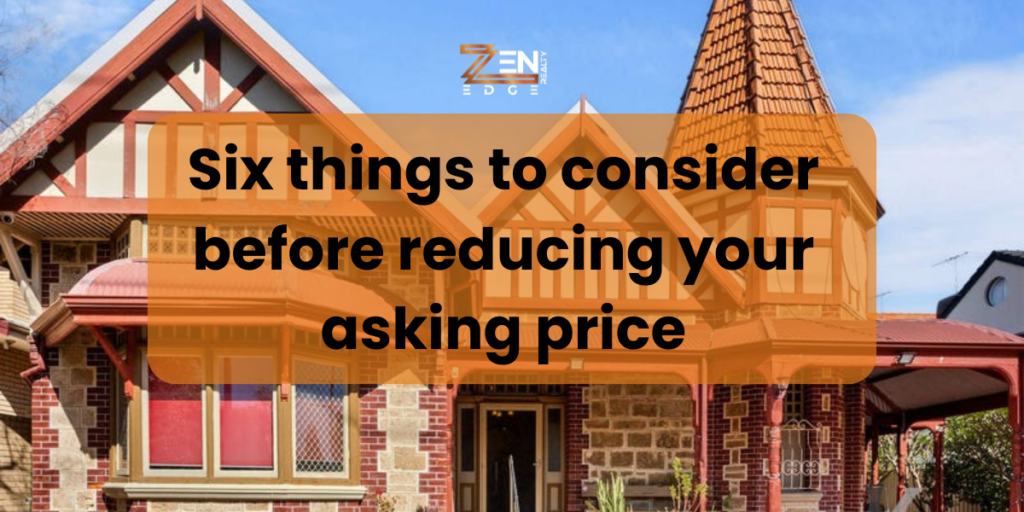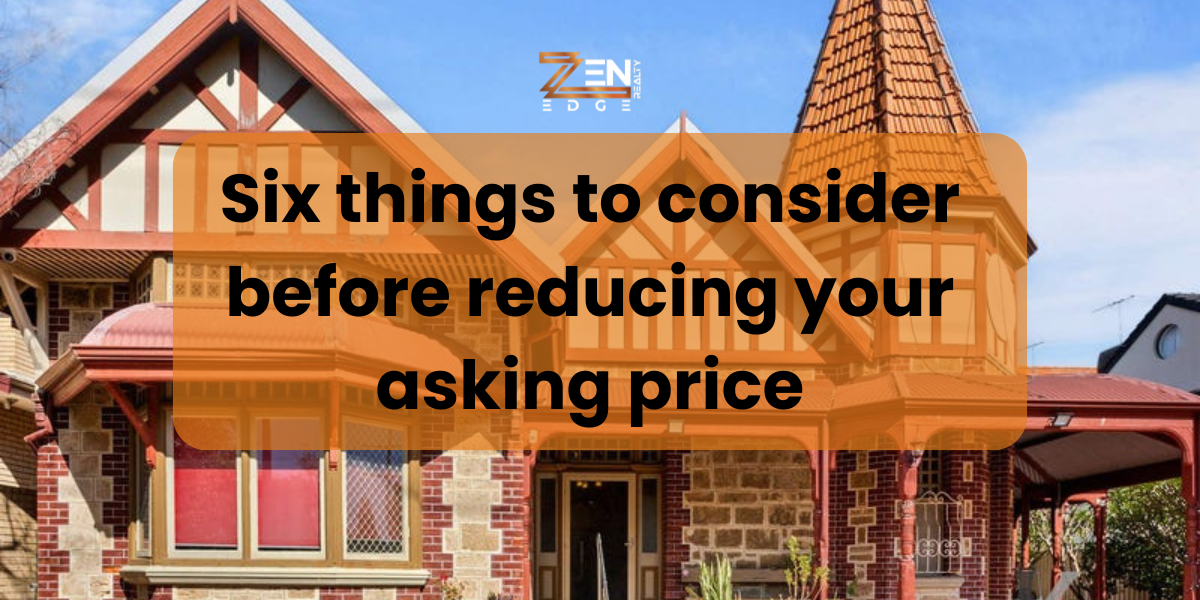
If you’re selling a property and thinking about lowering your asking price, it’s crucial to make an informed decision. Dropping your price can attract more buyers, but it’s not a step to take lightly. Here are six key factors to think about before you make that move:
- Market Conditions
Check how the property market is performing in your area. If it’s a buyer’s market, where there are more homes for sale than buyers, it might be worth considering a price drop. However, if the market is strong with high demand, you may be able to hold out for a better offer. - Recent Sales Data
Look at recent sales of similar properties in your neighbourhood. If similar homes are selling for less than your asking price, it could indicate that your price is too high. Understanding these trends will help you set a more realistic price. - Feedback from Potential Buyers
Pay attention to feedback from open houses and private viewings. If buyers consistently mention that your price is too high, it’s a clear sign that you might need to adjust. Sometimes, buyers might love your home but find the price out of their range. - Length of Time on the Market
Consider how long your property has been on the market. If it’s been listed for a while without much interest, reducing the price could help reignite interest. However, if it’s only been listed for a short time, it might be too soon to drop the price. - Your Urgency to Sell
Think about how quickly you need to sell. If you’re under pressure to sell quickly due to personal reasons or financial needs, a price reduction might be necessary. If you’re not in a hurry, you might decide to hold off and wait for the right offer. - Your Property’s Unique Features
Assess the unique features of your property. If your home has standout qualities that differentiate it from others, you might be able to justify a higher price. However, if your property lacks those features or has been on the market for a while, a price adjustment could make it more appealing.
Deciding whether to reduce the asking price of your property isn’t just a quick fix; it’s a strategic move that requires careful thought. Here are some additional aspects to consider that can help you make a well-informed decision:
- Property Condition and Presentation
Sometimes, issues with your property’s condition or presentation might be affecting its attractiveness. Before reducing the price, consider whether small renovations or enhancements could make a significant difference. Improving curb appeal or fixing minor issues can sometimes result in a higher sale price without needing a reduction. - Seasonal Market Trends
Real estate markets can fluctuate with the seasons. For example, properties often sell faster and at higher prices in spring and summer. If your home has been on the market during a slower season, it might be worth waiting until the market picks up before making a price reduction. - Competitive Advantage
Evaluate how your property stacks up against the competition. If similar homes in your area offer more features or better locations, a price drop might be necessary to stay competitive. Conversely, if your property has unique advantages, you might not need to adjust the price as drastically. - Emotional Attachment
Selling a home can be an emotional process. It’s easy to overestimate your property’s value based on personal attachment. Try to view your home objectively or seek an unbiased valuation from a professional to get a clearer picture of its market value. - Price Drop Impact
Consider how a price reduction will affect your property’s perceived value. Sometimes, a small reduction can lead to a surge in interest, while a drastic cut might signal desperation to buyers. Ensure any reduction aligns with your market strategy and doesn’t undermine your property’s value. - Alternative Pricing Strategies
Instead of a straightforward price drop, explore other pricing strategies. For instance, offering incentives such as covering closing costs or providing a home warranty can attract buyers without reducing the asking price. Creative solutions can sometimes be just as effective. - Feedback Analysis
Collect and analyze feedback from buyers and real estate agents. If you’re consistently hearing that the price is too high, it’s a strong indicator that a reduction might be necessary. Understanding buyer perceptions can help you adjust your strategy effectively. - Comparative Market Analysis
Conduct a detailed comparative market analysis (CMA) to see how your home compares to similar properties that have recently sold. This analysis will provide insights into whether your asking price is realistic or if a reduction is warranted to stay competitive. - Negotiation Leverage
Think about how reducing your asking price might impact your negotiation leverage. A lower price might attract more offers, but it could also limit your ability to negotiate higher offers later on. Balance your pricing strategy with your goals for the sale. - Economic Indicators
Keep an eye on broader economic indicators such as interest rates and employment rates. Economic conditions can influence buyer behaviour and market dynamics. A price reduction might be more effective during certain economic conditions than others. - Local Development Plans
Investigate any local development plans or changes in your area that might affect property values. New amenities or infrastructure projects could increase the value of your property over time. In such cases, you might want to hold off on a price reduction. - Your Property’s Unique Selling Points
Highlight your property’s unique selling points in your marketing strategy. If your home has special features that set it apart from others, ensure these are emphasized. This can sometimes justify maintaining a higher asking price. - Agent’s Advice
Seek your real estate agent’s advice on pricing strategies. Experienced agents can provide valuable insights based on current market trends and buyer behaviour. They can also suggest the optimal timing for a price adjustment. - Future Market Predictions
Research future market predictions and trends. If experts anticipate a rise in property values or a shift in demand, it might be worth waiting before reducing your price. Staying informed about market forecasts can help you make a more strategic decision. - Selling Strategy Review
Reassess your overall selling strategy. Sometimes, a change in approach, such as altering the listing description or improving your online marketing efforts, can rejuvenate interest without needing to reduce the price. Evaluate whether other adjustments might be more beneficial before considering a price drop.
By carefully evaluating these factors, you can make a more informed decision about whether to reduce your asking price. Each property and market situation is unique, so taking the time to consider all aspects will help you find the best path forward for a successful sale.
Discover the ZenEdge Realty advantage! Get an expert appraisal, confidently sell, and find your dream home with us. Get an Appraisal, Buy, or Sell with the Experts! Visit www.zenedgerealty.com.au.

Leave a Reply